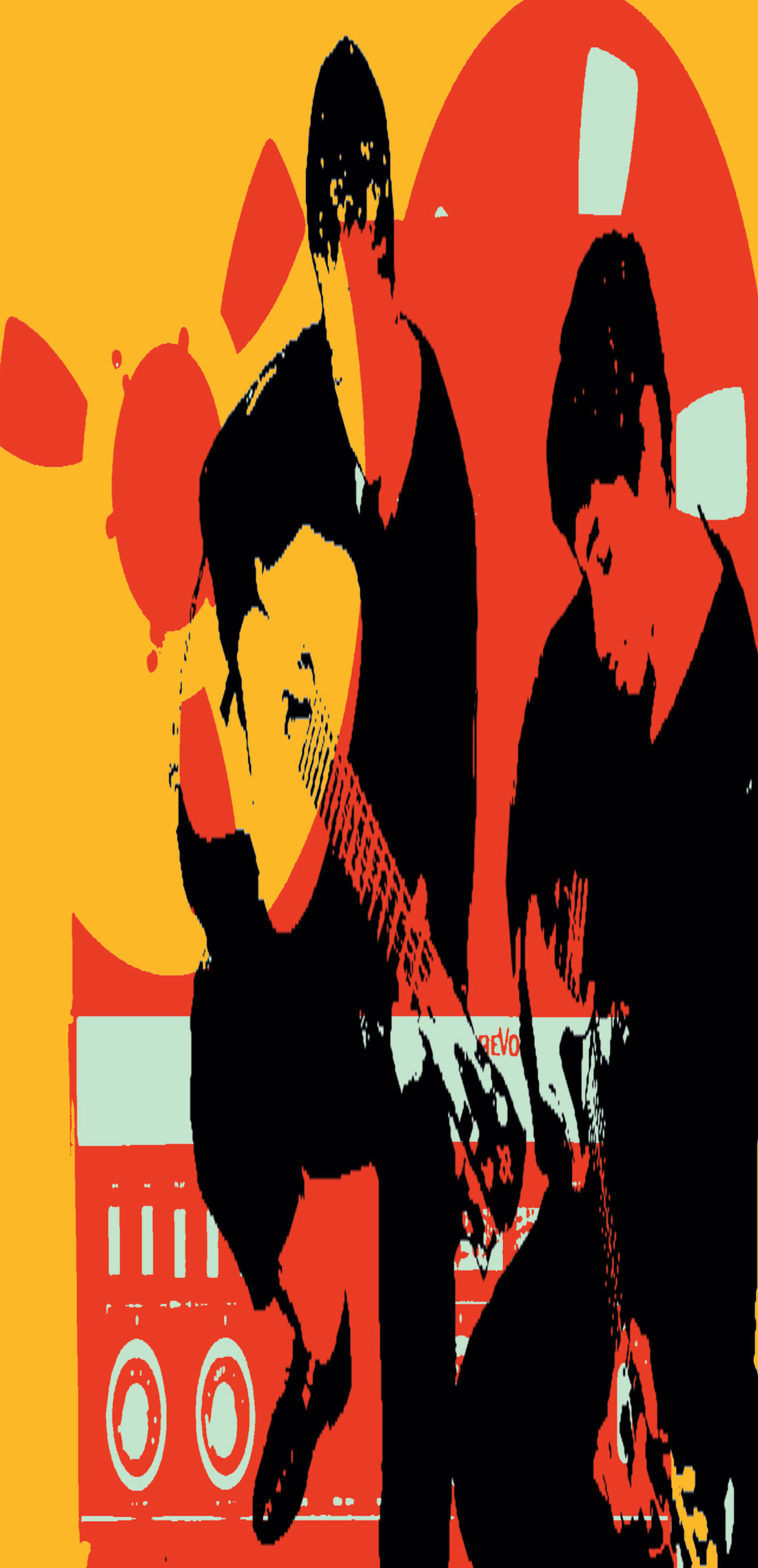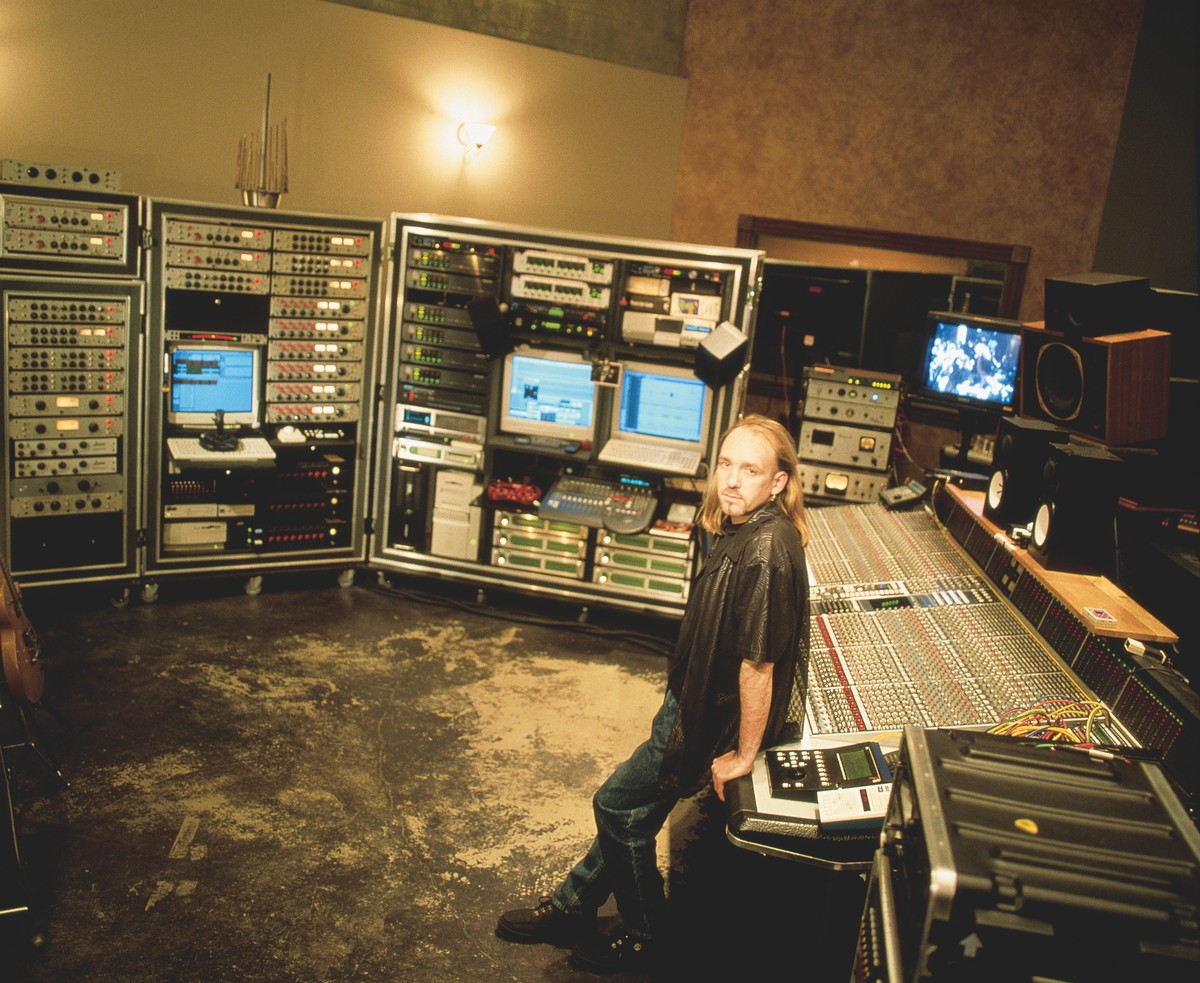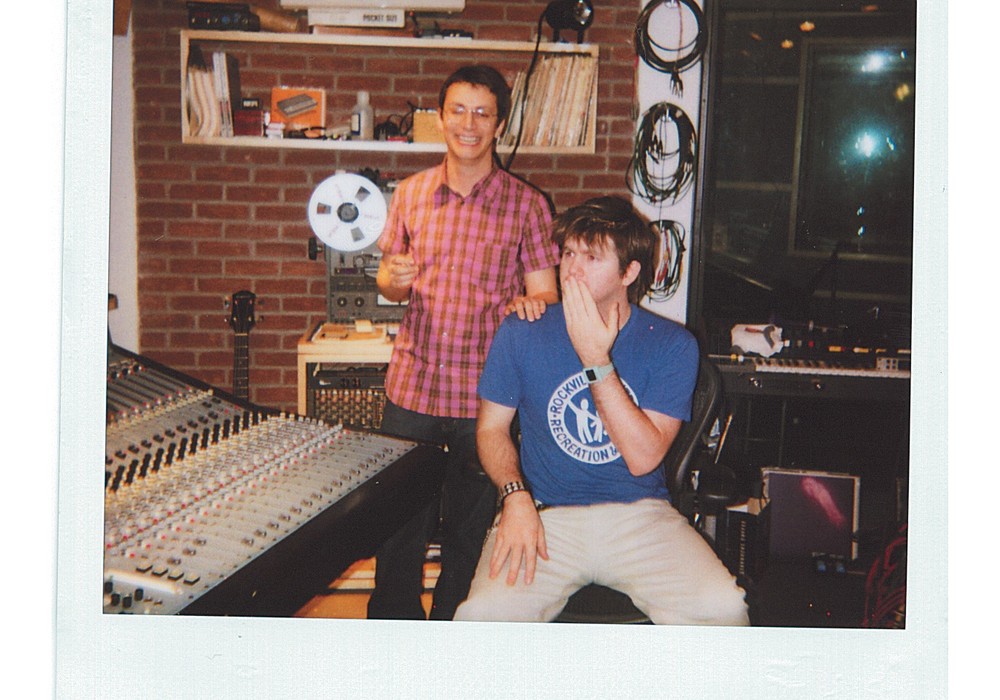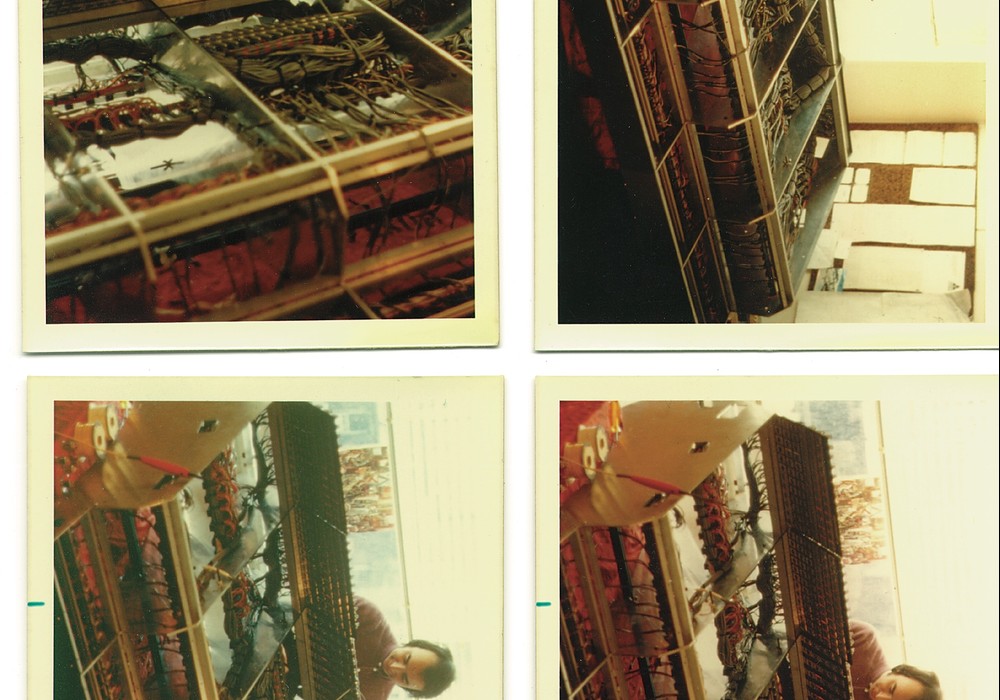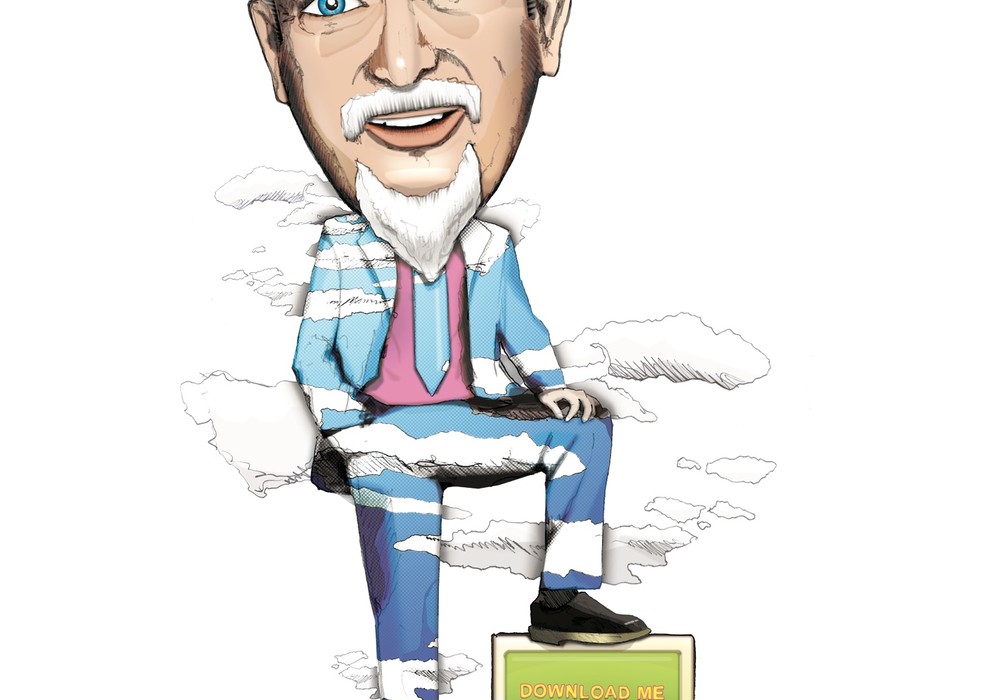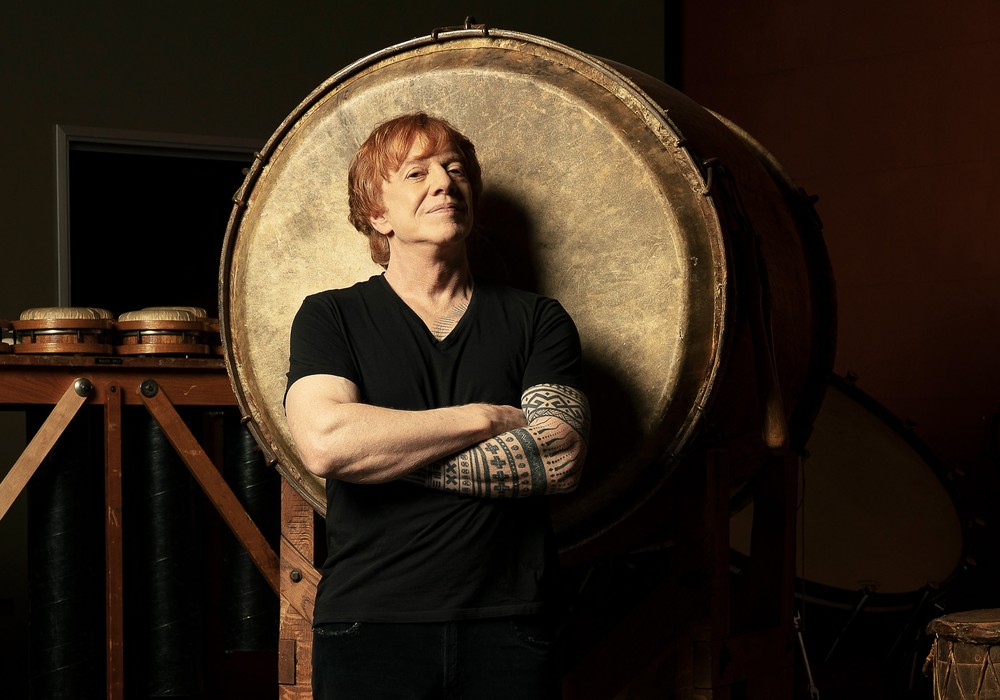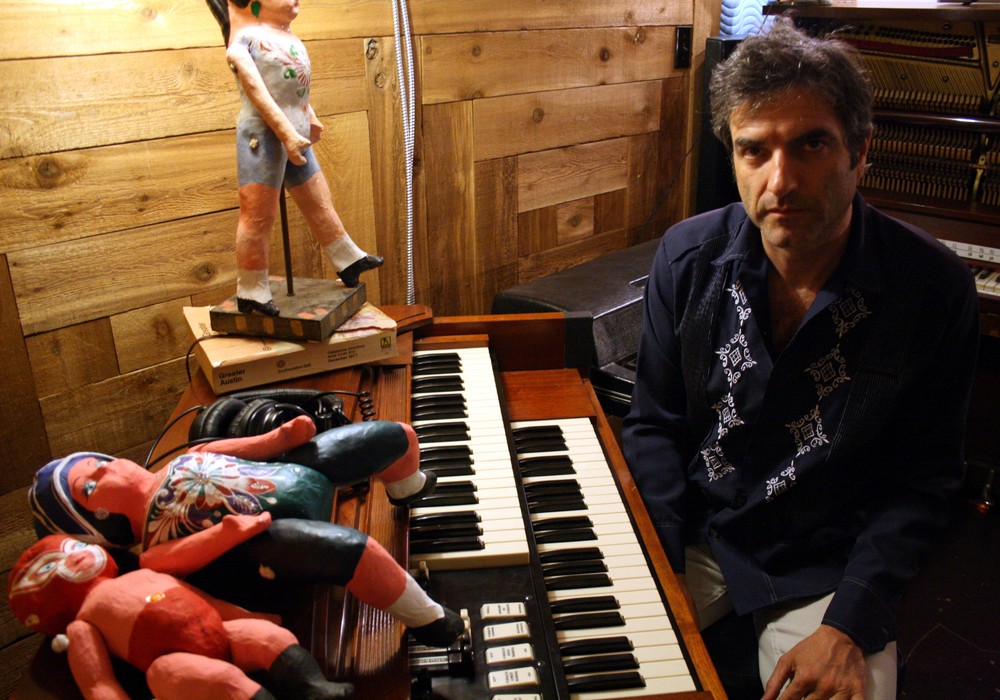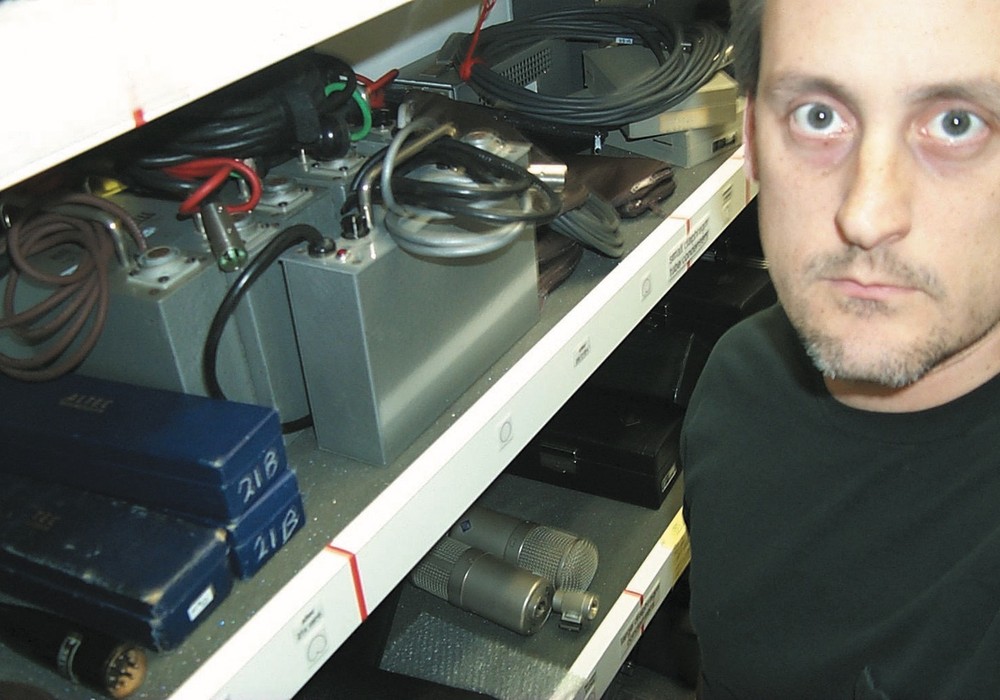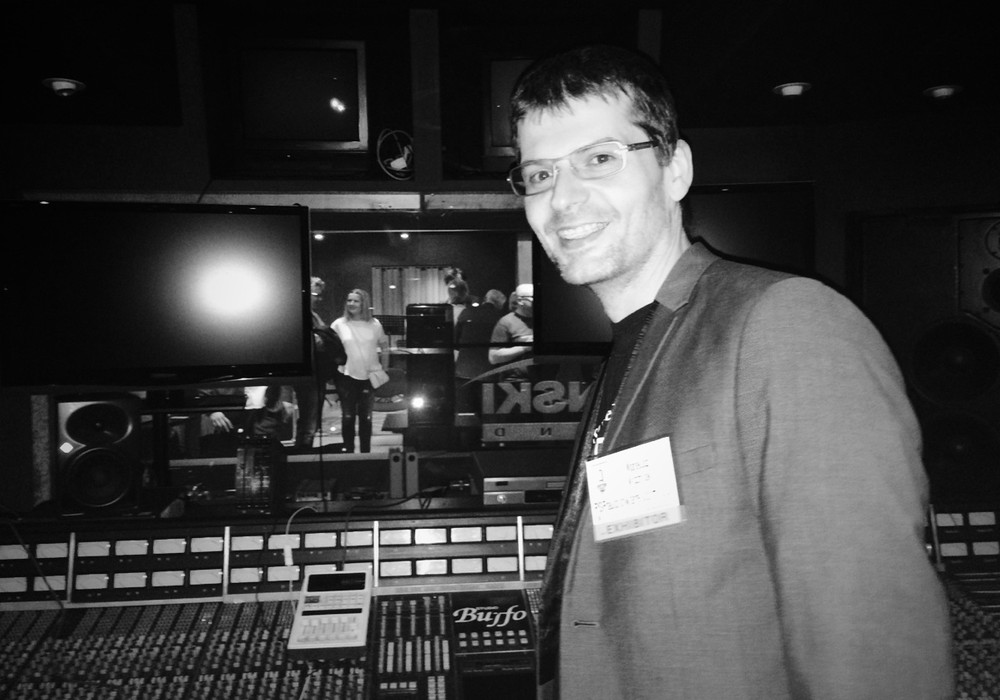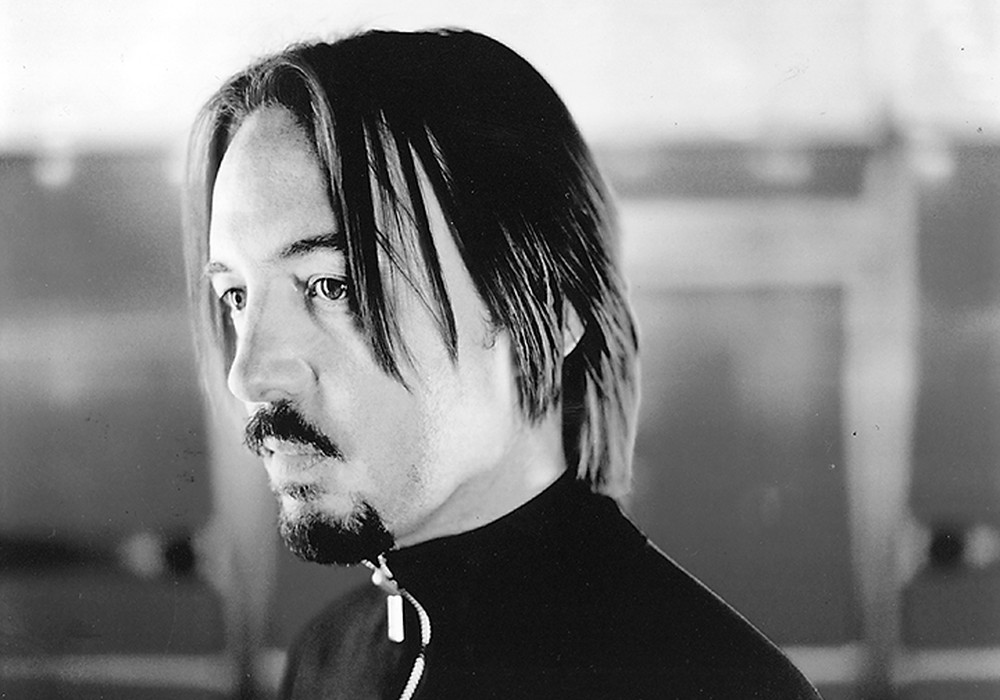Educated in music and voice at the University of South Dakota and having made himself a mainstay of the Los Angeles recording business, Bryan Carlstrom has garnered a reputation for working with hard-rocking bands. Guitar as a buzzword wouldn't really suffice to describe the types of bands he's crafted and framed in their signature sounds — stamped onto CD — working alongside producer Dave Jerden (Jane's Addiction, Alice in Chains, The Offspring), and on his own recent album productions. Currently he's well known for recording The Offspring's album Americana, which has sold in excess of 10 million copies. We're talking delivering the goods here. Yet he's also responsible for some of my personal favorite sounds of the '90s. He worked on the album Dirt by Alice in Chains. He's worked on over 50 albums and with such notable producers as Keith Forsey, Bob Rock, Ken Scott, Shel Talmy and Randy Burns. Jerden himself had Bryan as his engineer for 10 years and has said, "I think the best engineer on the planet is Bryan Carlstrom." Now he is cranking out records on his own, producing and engineering on them. These days he's really pushing it into full throttle with his own massive mobile Pro Tools studio in a steamertrunk and is working with like-minded individuals in co-producing, developing and doing the above average drive-by shopping of some new upstarts-with-guitars.
Versatile? How's surfing with Dick Dale,Crosby, Stills and Nash, Bonnie Raitt, Lush, DuranDuran, Goldfinger, Meat Puppets, Kiss, 4-Non Blondes, Social Distortion, Poe, Public Image Limited, Rob Zombie, and Die Krupps.
How did you meet Dave Jerden?
About 12-13 years ago I was working on a Billy Idol record over at Track recording studio. It was a two- room facility, so while I was working with Billy Idol in one room, Dave was in the other room doing the Jane's Addiction record Ritual de lo Habitual. That's when I actually met him, and he asked me to come on over and hang out with him. He'd come over and watch me work. And it was like 6-9 months after I finished working on the Billy Idol record that I got a call from Dave's manager asking me if I would be interested in working exclusively as his engineer. And I said, "Yeah". [laughter] It was actually quite ironic, because if I could have any engineering gig, it was the gig I wanted the most — you know it kinda came out of the sky.
What was it like working with him for all those years?
Honestly, it was like going through a doctorate program in how to produce records. Dave had worked with the Rolling Stones, Jane's Addiction and Talking Heads. He was just a reservoir of knowledge on how to make records, going back 25-30 years. As I worked with him on a daily basis, practically everyday, 6 days a week for 10 years, it was like going to the best producing school you could ever imagine. Each record was different and we'd run into different challenges with every record. We had to approach every artist differently, depending on the type of material, the songs and how much development they were in need of.
Could you anticipate where he was going with particular tracks?
Definitely, by the end of the 10-year period. I pretty much knew what he would say in most situations. There'd still be occasions where, wow, he'd say something that would blow me away, out of the blue. Most situations I could start moving in a direction without him even saying anything. I would just know what he wanted.
Tell us something about the notion of guitars that developed between you and Dave Jerden.
It's interesting. The very first day that I worked with Dave Jerden I was scared. I thought, "What if he doesn't like what I do?" And when it came to recording guitars, it's very funny, because obviously there's a bazillion different ways you could do it. Mics — cabinets — amps — how many mics you use, where you put them. And I was just feeling a little intimidated and not even sure what Dave wanted. So it came to recording guitars, and I decided well I'm just going to go out there and put one SM57 right on the speaker, straight on run that SM57 to a Summit tube mic pre thru a Summit tube compressor and straight into the tape machine, and keep it simple. When I put up the guitar sound Dave started shouting, "What's that guitar sound!" I told him it was just a 57 pointed straight at the speaker and then run through some Summit gear. And he goes, "Th.. th.. that's the guitar sound I've been wanting to hear for 15 years! Keep on recording guitars like that." [laughing] That day and that incident is the way we based a lot of our guitar recording from then on. It was almost always a guitar amp with a 57 on it, but we would change things. Use different amps, cabinets or guitars, stomp boxes, or layer things — record multiple passes — and put them on top of one another. But we never ventured much from using just that one SM57 thru the Summit gear. And that's the sound you hear on Dirt. It was funny how it worked out that way. But that's how I had been recording guitars prior to working with Dave. Doing things simple. Although, early on, I didn't always have access to good equipment, like the Summit tube gear, which definitely makes a big difference. And man, that is a rock and roll guitar sound.
Tell us about working with the Offspring. After having a hit record they changed their production team and...
The rest of this article is only available with a Basic or Premium subscription, or by purchasing back issue #28. For an upcoming year's free subscription, and our current issue on PDF...
Or Learn More
